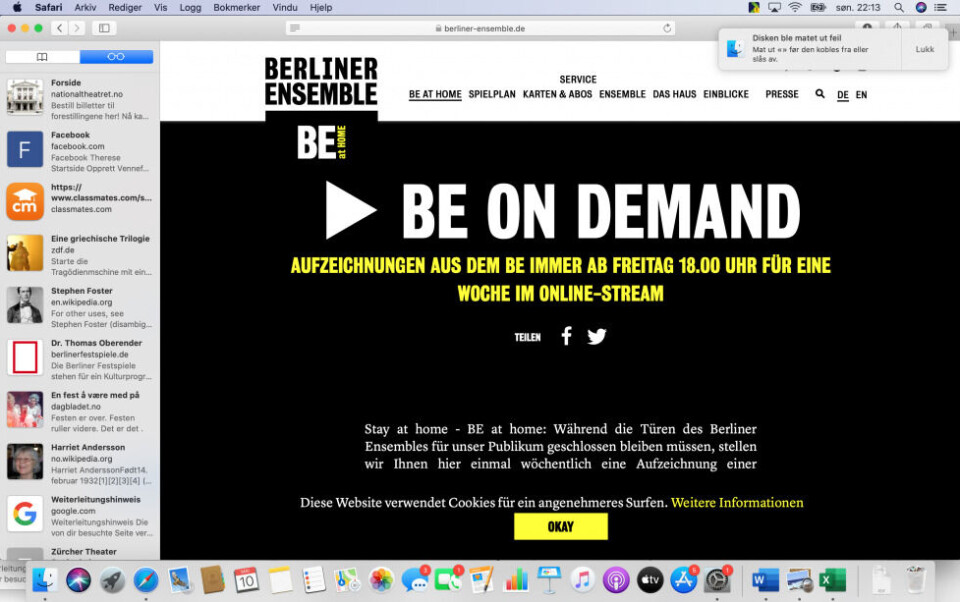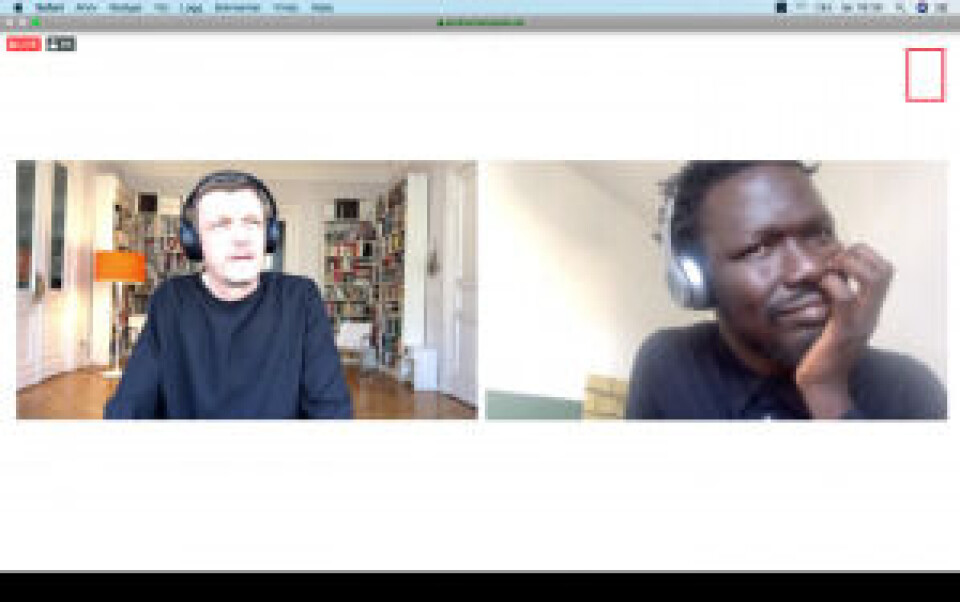
German theater and the Corona crisis
As the badly needed rush money has certainly helped many people to survive the last two months, the real consequences of Corona for the theater culture are to be seen as entirely unclear, writes Thomas Irmer
By mid-March, like almost everywhere else in Europe, theatres in Germany were closed for the public. A few more days
remained for rehearsals before complete shutdown. On 16 March Berliner Festspiele called off Theatertreffen as the first big event killed by Corona. Upon which the whole festival season stretching into fall was disappearing from the calendar of events: the festivals in Mülheim and Heidelberg, followed by Bayreuth (due to missing time for rehearsals), Theater der Welt in Düsseldorf, the likewise renowned Ruhrfestspiele in Recklinghausen and, more recently, even the Ruhrtriennale that would start only 14 August and present its program until 20 September. It may be unjust to take these well-funded flagship festivals for the whole of German theatre, but their cancellations were the most visible and drastic acts connected with a perspective for theater culture altogether.
‘The digital turn’
Now we have watched the first digital edition of Theatertreffen which presented six out of ten productions via streaming, even accompanied by the ritual discussions with artists and jury members to be seen in seven, eight or nine adjacent zoom-windows on the screen. This indicated that the ‘digital turn’ is possible and workable, at least to save such institutional events like Theatertreffen. The live chat for Toshiki Okada’s up-to-date Hikikomori isolationist drama The Vacuum Cleaner (Münchner Kammerspiele) was followed by about 120 people who were joined by another 30 or so for the discussion afterwards. That’s not so impressive for a digital turn and the craze about new media for theater may distract from much more existential questions in the context of current politics.

As nobody could tell how long theatres would remain closed, financial matters became urgent from the very beginning. Politicians coined the shallow phrase “auf Sicht fahren” as if they were cautiously maneuvering through thick fog meaning decisions only for tomorrow or maybe next week but certainly not for the near future. In this situation it was up to artistic directors to handle future planning and, even more pressing, find out about compensation payments for actors not performing nor rehearsing. Here the differences in the system of employment became all the more visible. This has been certainly no problem for fully employed members of the state and municipal theatres, as they would continue to receive their regular payments. Another model would apply for the so-called subsidized private theatres like Schaubühne and Berliner Ensemble. Schaubühne put their people very soon on the cost-cutting short-time work program (Kurzarbeit) with reduced wages (about 70 to 80 percent depending on your family status) which are partly compensated by public benefits to reach nearly the income someone received before. Private and independent theatres living on much smaller budgets would have to find other ways that mostly meant for their free-lance artists to get benefits from other sources. Another phenomenon has been the many guest actors on individual contracts on the payroll in the state theatre system. Research has shown that in a few cases actors were compensated 100 per cent for cancelled performances, in other cases at reduced rates like 80 per cent or less. Also, one would have to look into contract details about such compensations. Theaters like Deutsches Theater in Berlin, however, have a long list of guest actors who face severe losses in the long run.
A new free-lance culture
We live in a rough free-lance culture for large parts of a deregulated public sector for many years now – not only theatres but also academia, national public media and similar institutions don’t follow the rules of regular employment anymore. Thus, the existence of very many people in the field of culture was at stake overnight. After the mid-March shocks state governments opened special funds to help people with instant cash. But this depended on where you live, Berlin being different from Bavaria or Nordrhein Westfalia. In Berlin, however, people could apply for 5,000 Euro in a surprisingly unbureaucratic way to make ends meet for the uncertain months to come. Additionally, loans (up to 15,000 Euro) were given out to small companies in the field of culture and media. In other states of the federal republic this has been much more complicated, and also the funds for such programs varied significantly. Why Berlin, once known as ‘poor but sexy’? The capital is certainly also the capital of free-lancers in Germany, and these funds are not only meant to be a nice gift but they keep up an economy that brings, among many other things, VAT money into circulation and fuels the creative energy into institutions that have, as mentioned before, blocked off access to regular incomes for decades now.
Dissenters
As the badly needed rush money has certainly helped many people to survive the last two months, the real consequences of Corona for the theater culture are to be seen as entirely unclear. One topic of discussion emerged over the question how important (or relevant to name the word) theatre is for society. Ulrich Khuon, artistic director of Deutsches Theater and president of the German Theater Union (Bühnenverein), complained about an apparent ignorance towards theatre culture in the crisis. The multi-billion Bundesliga seems to be of more concern, one could say. Frank Castorf protested, in an interview with Der Spiegel, against the authoritarian tendencies in the various regulations of public life with some humour, expressing the growing dissent among artists: “I don’t need to wash my hands by orders of Mrs. Merkel.” This leads to the moment when decisions and regulations are more and more questioned now, also in the field of theatre. When the Ruhrtriennale festival was cancelled, this was not only a matter of a long-term decision but also a missed chance to re-organize theatre in a different way in the huge venues of former mining pits and steel factories that have already seen innovative spatial organization by this festival. Hence, Christoph Marthaler, a sort of resident artist connected with the festival led by Stefanie Carp, criticized the hasty cancellation with the argument that they were well prepared for the rules of social distancing among the audience. The example of Ruhrtriennale may stand for the ignorance that Ulrich Khuon was addressing. There have to be found new ways for theatre.
Practically, we look into two areas of theatre culture for getting back to performances. One will be the organization of actors and audience according to distance rules. As the first theatres (in Hesse and Saxony) are permitted to reopen this week and way before the end of the season, they appear, paradoxically, unprepared for this. Either you have no suitable performances or no reasonable plans for reduced seating. This very issue is connected with the other field of decreasing ticket sales and less money to compensate all the losses – a catch 22 spiraling down into the crisis after Corona. (Publisert 13.05.2020)








